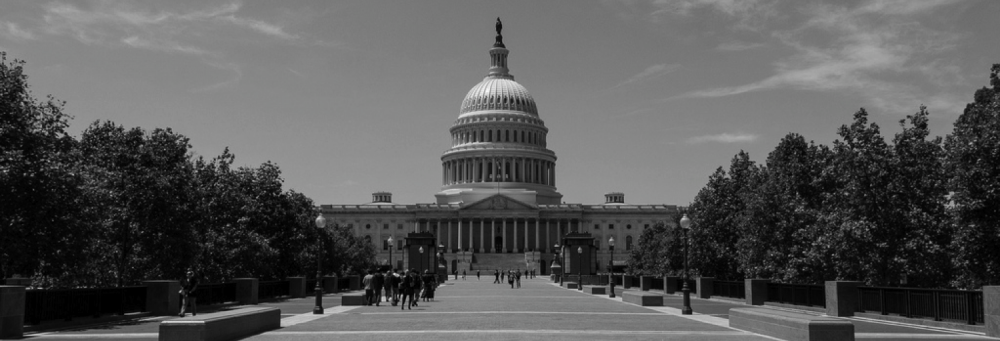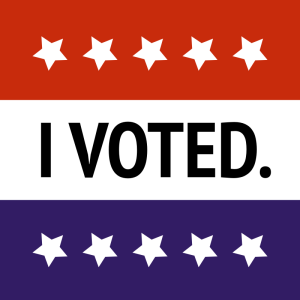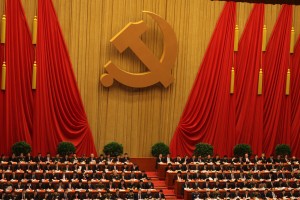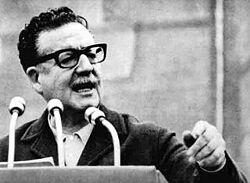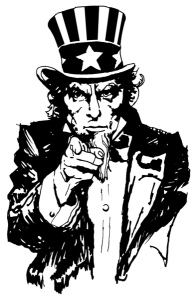 Hardly a day goes by without a US politician invoking American values to justify the country’s course of action. The president’s State of the Union address every year spells out for the ignorant listener what defines the United States as a country: equality, pluralism, democracy, selflessness, fairness, opportunity and justice among others regularly make the list. But what for Americans maybe is a fair assessment of their country and summary of its superior value system sounds to many in the international community like a sneer at reality.
Hardly a day goes by without a US politician invoking American values to justify the country’s course of action. The president’s State of the Union address every year spells out for the ignorant listener what defines the United States as a country: equality, pluralism, democracy, selflessness, fairness, opportunity and justice among others regularly make the list. But what for Americans maybe is a fair assessment of their country and summary of its superior value system sounds to many in the international community like a sneer at reality.
The notion that the United States operates according to a higher set of moral values is hardly observable in reality. The decade-long wars in Iraq and Afghanistan, the United States treatment of prisoners, its treatment of dissent, its treatment of partners, international institutions and the international community as a whole and of the American people stand in contrast to the politicians lofty rhetoric. Maybe most troubling, however, is the way the United States deals with its own failures to adhere to its own ambitious standards.
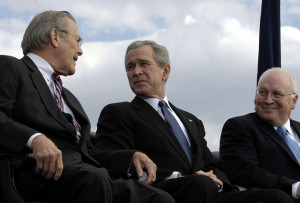 The United States has committed war crimes. As part of its global campaign against terrorism it has illegally abducted, detained and tortured hundreds. Dozens were killed in the process. It was widely known during the Bush years and has been further detailed by the Senate’s so-called Torture Report released in December 2014. Yet, despite the facts being known and torture being a clear violation of the Geneva Convention there have been no legal consequences to anyone responsible. George Bush, Dick Cheney and Donald Rumsfeld who have ordered the CIA and military to torture were neither indicted nor charged. The same is true for John Yoo and Jay Bybee who drafted and signed the legal justification using torture and for George Tenet, the then Director of the CIA, who went along and oversaw the implementation. The actions taken were universally condemned in the US and other nations alike. Yet, the United States with a constitutional scholar as president was unable to level justice against the perpetrators.
The United States has committed war crimes. As part of its global campaign against terrorism it has illegally abducted, detained and tortured hundreds. Dozens were killed in the process. It was widely known during the Bush years and has been further detailed by the Senate’s so-called Torture Report released in December 2014. Yet, despite the facts being known and torture being a clear violation of the Geneva Convention there have been no legal consequences to anyone responsible. George Bush, Dick Cheney and Donald Rumsfeld who have ordered the CIA and military to torture were neither indicted nor charged. The same is true for John Yoo and Jay Bybee who drafted and signed the legal justification using torture and for George Tenet, the then Director of the CIA, who went along and oversaw the implementation. The actions taken were universally condemned in the US and other nations alike. Yet, the United States with a constitutional scholar as president was unable to level justice against the perpetrators.
While the torturers got a pass in the United States, swift justice was dealt to whistleblowers, most notably Edward Snowden. His revelations shed a light on dramatic government overreach and violations of the 4th Amendment, started a much needed public discourse about surveillance and had close to no adverse consequences for his nation except his government’s embarrassment. But although he went to great lengths to show his intentions were benevolent and didn’t profit personally but sacrificed his career in order to publish his revelations the Obama administration saw it necessary to drive a young man of 29 years into permanent exile, revoke his passport and label him an enemy of the state. The example of another even younger whistleblower, Chelsea Manning, shows what Snowden can expect should he be extradited. Manning was held without charges or trial for 3 years violating the 5th Amendment. He was eventually charged with aiding the enemy and currently serves a 35-year prison sentence.
 Domestically the United States incarcerates more citizens than any other nation. More than 2 million Americans are currently imprisoned. But while the law reacts decisively on trivial drug offenses the major crimes of Wall Street banks that on the one hand defrauded the country up to a point close to economic collapse while on the other paying their executives multimillion-dollar bonuses went unpunished. Instead of investigating and prosecuting the banks and especially their leadership for fraudulent behavior and find ways to prevent future conduct of that kind they received a bailout at strongly favorable conditions. None of the CEOs and top executives had to face jail time or was even indicted. The banks are larger in 2015 than they were in 2008 and annual cash bonuses are again in the tens of billions.
Domestically the United States incarcerates more citizens than any other nation. More than 2 million Americans are currently imprisoned. But while the law reacts decisively on trivial drug offenses the major crimes of Wall Street banks that on the one hand defrauded the country up to a point close to economic collapse while on the other paying their executives multimillion-dollar bonuses went unpunished. Instead of investigating and prosecuting the banks and especially their leadership for fraudulent behavior and find ways to prevent future conduct of that kind they received a bailout at strongly favorable conditions. None of the CEOs and top executives had to face jail time or was even indicted. The banks are larger in 2015 than they were in 2008 and annual cash bonuses are again in the tens of billions.
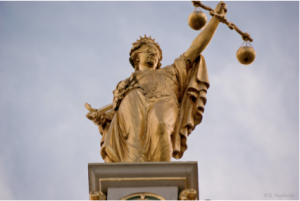 What does it say about the United States’ character that it is not able to address its own failures and injustices within its own borders? What does it say about its character that it rather hunts down and jails young men who uncover inconvenient truths than torturers who brought grave injury and death to hundreds and criminals who brought poverty and despair to millions of Americans? The ideal of America that is so often confessed to hardly matches the country its actions describe: a country unable to address its own most egregious wrongs, a continuous breaker of its own and international law, a protector of the powerful and persecutor of the powerless. If the United States cannot to stand up for their own core principles and most fundamental laws – American values don’t exist. They are just words. And if Americans want to live in the country they profess to love, their government needs to live up to the ideals it uses to define it.
What does it say about the United States’ character that it is not able to address its own failures and injustices within its own borders? What does it say about its character that it rather hunts down and jails young men who uncover inconvenient truths than torturers who brought grave injury and death to hundreds and criminals who brought poverty and despair to millions of Americans? The ideal of America that is so often confessed to hardly matches the country its actions describe: a country unable to address its own most egregious wrongs, a continuous breaker of its own and international law, a protector of the powerful and persecutor of the powerless. If the United States cannot to stand up for their own core principles and most fundamental laws – American values don’t exist. They are just words. And if Americans want to live in the country they profess to love, their government needs to live up to the ideals it uses to define it.
